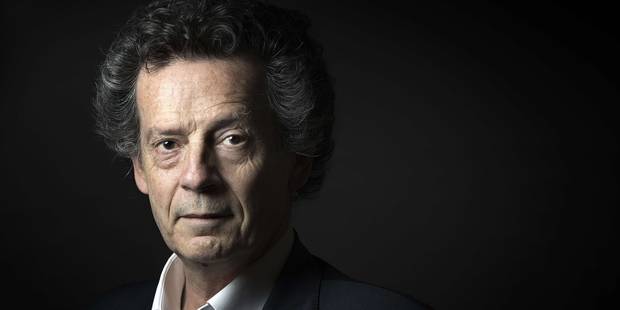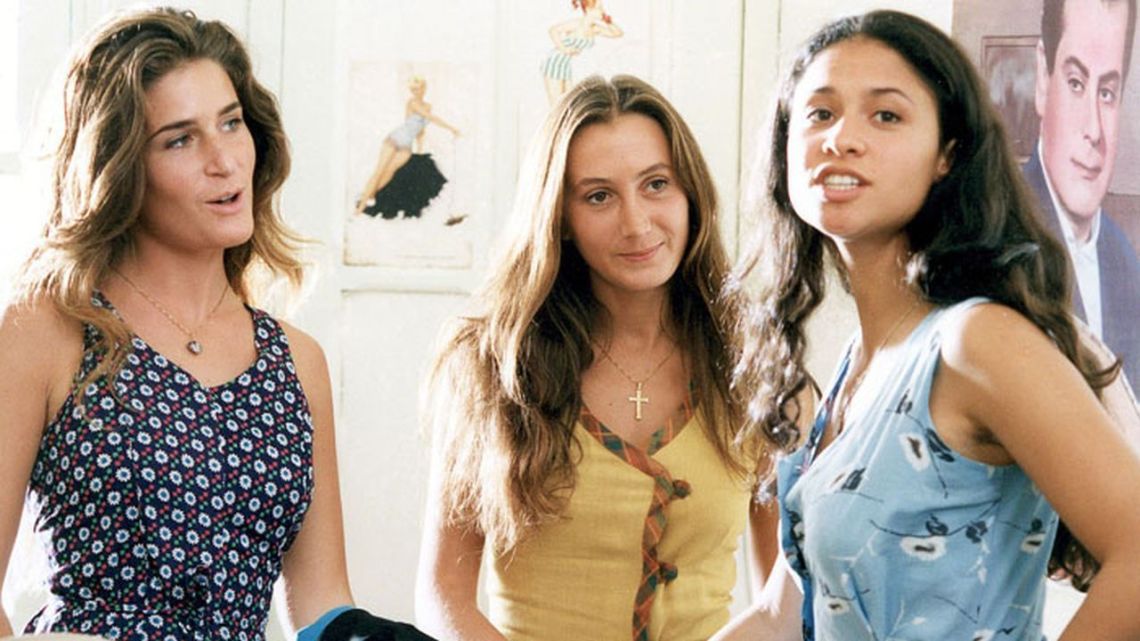
Les prépondérants by Hedi Kaddour is an amazing book. I somehow devoured it in the middle of finals week. And I enjoyed every bit of it. It’s the perfect book for me because it’s authentically North African and international at the same time. The plot revolves around the stories of Rania, Raouf, Ghantier and their American Clic. These characters may be the drivers of the story but the main goal of the narrative is to create a mini cosmos of North Africa, France, the US and Germany in the early 20s.
In this post, I will share with you the most important aspects that made this book click with me so much and the burning questions I was left with when I finished it.

1. Nahbès is a fictional city
I absolutely love the fact that Nahbès doesn’t really exist. For the longest time, I thought it was somewhere in Morocco but it turns out the city is fictional. When the author was asked about this choice, he said that he made Nahbes imaginary for 2 reasons:
- It allowed him the freedom to avoid fanatics of any city who know all about their city and wouldn’t miss the opportunity to call him out for not being 100% accurate.
- He explains that he was born in Tunis but that he also spent a long time living in Morocco. So he didn’t want to choose between one country or the other because he is attached to both, and it’s the same after all, from a French colonisation perspective.
But none of these reasons is the one that makes me love Nahbès’ anonymity. I think that the fact that Nahbès is fictional perfectly represents our inability to capture and represent the past without bias. Movies like Un été à la Goulette for example depict the city where they take place through a lens that is completely skewed by nostalgia. The reconstruction is so distorted that this land of tolerance and coexistence between all the different religions and nationalities boils down to an almost soulless caricature. Granted, I haven’t lived at that time and I don’t know what La Goulette was like, but I am convinced the bias of nostalgia is unavoidable. Sometimes it feels like there is no way to capture the past without leaving the print of our fantasies, imagination and desires. In that sense, Kaddour confirms this idea by admitting that the city he describes doesn’t really exist.

2. The rushed ending
As soon as I finished the book, I was like “what the fuck is this ending?””Did he write this in 5 minutes?” Who ends such a lyrical book with “Neil travaille sur Eugenie Grandet”?
But looking back, this rushed ending is actually what the reader is begging for after Raouf’s death and the hellish incident with the grasshoppers. An incident I haven’t quite understood honestly.
Also…
3. Why the hell did he kill Raouf?
Granted with Shonda Rhimes, and George R.R. Martin, I’ve learnt to expect a hero’s death like it’s no big deal. But this time, with Raouf, it just didn’t make sense. What is the goal of killing him?
Somehow, Raouf’s under-dramatized death reminded me of Kid’s excruciating accident. I can’t help but feel like by sparing Kid, the author signed Raouf’s death sentence.
Maybe Kaddour wanted to show the irony of Raouf being elevated to a nationalist hero when he was just there and wasn’t quite a leader in the movement. Or maybe he intended Raouf’s death to be the ultimate communist move: to kill the bourgeois! I don’t really know. Sometimes, I think it’s just a shortcut to end the book, a pretext to just finish on a somber note.
In any case, I am very grateful for the goodbye scene we were allowed after Ghantier’s party,when they all went to Abdoulfaraj’s place.
4. Tahya Rania
First let me start with the fact that there is no way for me to believe that Rania is in love with Raouf! It was never explicitly said, but it was kinda-sorta hinted multiple times. And I just didn’t buy it. For me, Raouf is the son that Ghantier and Rania never had. The 3 of them make the perfect bourgeois North African contradictory family.
Just like her creator, Rania is
«[] ce qu’on appelle un couscous-pommes frites»
She’s the person who received the most “You go girl!”s from me this year and God knows I say that to everyone, all the time.
Feminism in this book is just exquisite! Perhaps a good example is a passage in the book where Rania says ” je ne veux pas qu’il pense que je suis une simple rouleuse de couscous, ceci dit je roule parfaitement le couscous” And that is just perfect.
What the book does so well is demonstrate how institutionalized male domination happens in the Arab world. It shows how the whole process is fueled by the infamous “hchouma” (p139). Indeed, the way women deal with their prison is by becoming their own gaolers/jailers, which ingrains and perpetuate the yoke of tradition and domination.
Of course, Rania is the perfect symbol of girl power. But her lyricism and her poetry are so touching, which makes her so much more than just the emancipated widow. Which leads me to :
5. Poetry
Throughout the book, there are poetry verses in Arabic, French, German and English. And so much is “found in translation”. I recently heard Zizek talking about how a translation is not an imperfect duplicate or Ersatz that tries to imitate the original text. Instead translation adds an additional layer of meaning. And the combination of the original and the translated version gives the full meaning. This is such a useful way to look at translation in this book.
Favorite expression in each language:
Arabic :
- Poetry: “و سكر ثم سهو ثم شوق”
- Expression: “يعندين فرانسا”
French:
- Chiasme: “La parfaite valeur et la poltronnerie complète”
- quote: “C’est pas bon la discussion entre Arabes et Américains, ça rend nos arabes prétentieux.”
German: “Streben nach Volkommenheit”
English: “Hit fast Hit hard. No hard feelings”
6. Favorite Chapter:
Scaradère where the French agree to projecting an American film about the French Revolution.
What resonated with me the most is how loaded with Ideology cinema is. Almost everything I want to say about this chapter is already very well explained in this article that I highly recommend.
7. Ghantier
I kept the best for last. Ghantier is hands down the best character out there.
My favorite quote by him is “Ça veut jouer aux Français en tuant des arabes, mais seule la France a le droit de tuer des Arabes. Vous entendez ? Seule la France”
Ghantier is such a complexe character. He is so contradictory, and convinced at the same time.
In any case,the characters, the setting and the themes that Les Prépondérants deals with are so familiar to me that I often forgot the events are taking place in the early 20th century.
I am currently waiting to read 2084 by Boualem Sansal that also received the Grand Prix du Roman de l’Académie Française . Someone has the book on hold in my university’s library and there is a copy in OSU that has been checked out for like a month now… I think I might just buy it when I get to Tunis.
Quick note: ngl, I hesitated for a while and I thought I could write this review in French, but you know what? The best way to honor Les Prépondérant‘s international scope is to write this in good ol’ English.;)


cool…review. concerning Un été à la Goulette…probably you are right – it is nostalgic…what people would have liked the situation to be, rather than what it was…but,, but, but..I remember a time in the 1960s, when I lived in Tunis,..and it seemed to me that cultural tensions were less pronounced. i guess i liked the film precisely because i’d like to believe that Tunis (and other Tunisian cities) could be like that…and maybe some day, when this crazy phase has run its course, will be So, I guess I’ll have to tract down a copy of Les Preponderants…
LikeLiked by 1 person
Hello! As an aspiring French learner I appreciate and benefit from you posting in English! My French is quite rudimentary and I have not been able to locate a translated copy of Les Prépondérants. Would you have any other reading suggestions that may have a decent English translation, or alternatively is perhaps feasible for a novice French speaker to fumble their way through slowly? I have read some translated books from Naguib Mahfouz, but that is the closest I have come to broad North African literature. Any recommendations would be greatly appreciated!
I enjoyed your review and hope to one day be competent enough (in both French and Arabic) to get to Les Prépondérants and other works!
LikeLike
Hi Art S. I am so glad you enjoyed this post.
As far as translated works, your best bet is Kahlil Gibran’s books. You can find almost all of them in Arabic, French and English.
He’s Lebenese, so it might not be exactly what you’re looking for, but it’s good start.
I’ll ask around for some more recommendations. Best of luck!
LikeLike
Thanks for the reply! I’ve read The Prophet by Khalil Gibran, but returning to it and his other work in French or Arabic is a great idea!
Final question, would you have any other recommendations for Tunisian work that may be in English? Thanks again!
LikeLike
Can’t agree with you re this book. I enjoyed its opening with tensions between filmmakers and locals, Ranya seemed a promising character , but… any plot , or character, development got lost in a mass of anecdotes and wordy philosophising. And does Heddi Kaddour have something against the full stop? His often page-long “sentences” were frequently unreadable. Didn’t much care about the death of Raouf, a selfish young man with whom I had little empathy. Sorry, but for me pretentious novel of a type
which French literary prize committees seem, bafflingly, to favour.
LikeLike